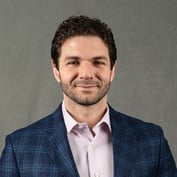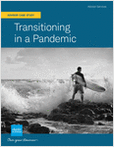When people consider acting unethically, do they tend to look at it as more of a “50 shades of grey” issue than a black-and-white issue?
Yep.
There are undoubtedly bugs in our moral code — hidden reasons and justifications in our own minds about why it’s OK to cheat or steal, up to a certain extent.
Dan Ariely, a professor of psychology and behavioral economics at Duke University and a founding member of the — love this name — Center for Advanced Hindsight, researches this very topic. He is known for conducting some amusing and unorthodox experiments and for questioning the forces that influence human behavior and the irrational ways in which we all often behave.
Ariely has given a number of TED Talks, including one that provides some interesting perspective for insurance and financial advisors who may wrestle with temptation to cheat a little here or there on seemingly minor issues.
Ariely says his interest in cheating started with the Enron scandal. He wondered whether it was just a few bad apples who capable of doing such things or a more endemic situation in which many people were capable of behaving this way. He also wondered under what circumstances cheating might be seen as more acceptable.
Through a series of experiments, Ariely found that there weren’t a few people who cheated a lot; in fact, there were a lot of people who cheated a little bit. And people tended to engage in unethical behavior more if they witnessed others like them cheating.
On the one hand, Ariely says, we all want to be able to look in the mirror and feel good about ourselves — so we don’t want to cheat. On the other hand, we might see that we could cheat a little bit and still feel good about ourselves.
“In economic theory, cheating is a very simple cost-benefit analysis,” Ariely said in a TED Talk on the subject. “You say, ‘What’s the probability of being caught? How much do I stand to gain from cheating? And how much punishment would I get if I get caught?’ And you weigh these options out, you do this simple cost-benefit analysis and you decide whether it’s worthwhile to commit the crime or not.”







 February 10, 2016 at 12:00 AM
February 10, 2016 at 12:00 AM











 Copyright © 2024 ALM Global, LLC. All Rights Reserved.
Copyright © 2024 ALM Global, LLC. All Rights Reserved.